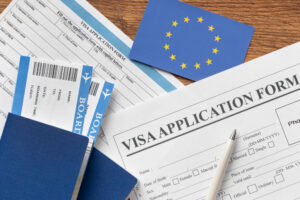1. Register Your Address (Anmeldung)
One of the very first things you must do is register your address at your local Bürgeramt (registration office). This process, called Anmeldung, is essential and legally required. You’ll need to bring a valid passport, your rental contract, and a completed registration form. Once done, you’ll receive a Meldebescheinigung (registration certificate), which is needed for many other formalities.
2. Open a German Bank Account
To manage everyday transactions and receive your salary or scholarship, you’ll need a German bank account. There are several options, from traditional banks to online and mobile banking services. Having a local bank account is also crucial for setting up payments like rent and health insurance.
3. Get a Local SIM Card
Having a local German phone number will make your life easier, especially when it comes to communication, navigation, and using local apps. Compare different mobile providers to find the best data plans for your needs.
4. Get Health Insurance
Health insurance is mandatory in Germany. If you’re a student, you can opt for public health insurance providers like TK or AOK. For professionals, private insurance options might also be available depending on your situation. Make sure you get this sorted quickly, as it’s a requirement for many official processes.
5. Activate Your Blocked Account
If you’ve come to Germany on a student visa, you likely already have a blocked account (Sperrkonto). After arriving, you’ll need to activate it and ensure funds are accessible for your monthly withdrawals. This account serves as proof that you have sufficient financial means to support yourself during your stay.
6. Complete University Enrollment
For students, completing your university enrollment is a top priority. This usually includes submitting your final documents, paying semester fees, and receiving your student ID card. Your enrollment is essential for accessing university services and applying for your residence permit.
7. Apply for a Semester Ticket
Most German universities offer a semester ticket, which gives you unlimited access to public transport in your region. It’s cost-effective and makes commuting around your city much easier. Check with your university for how to get yours.
8. Book Your Residence Permit Appointment
If your visa is valid for a limited time, you’ll need to apply for a residence permit. Book an appointment at your local Ausländerbehörde (foreigners’ office) as early as possible — slots fill up quickly. Make sure you gather all necessary documents beforehand.
9. Explore Your City & Settle In
Once the essential paperwork is out of the way, take time to explore your new home. Get to know your neighborhood, find your favorite cafés, learn some basic German phrases, and connect with local communities or student groups. Settling in is not just about logistics — it’s also about feeling at home.









